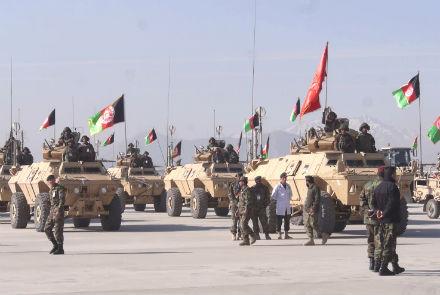Military affairs experts and a number of ex-security officials on Thursday called for comprehensive reforms to be implemented in Afghanistan’s security sector in order to enable the conventional forces defeat insurgents on the battlefields.
Experts say that in view of ongoing uncertainties and poor war leadership among the security institutions, the security situation in the country would deteriorate further unless fundamental reforms are implemented.
Commenting on the issue of wide-ranging reforms in Afghanistan’s security institutions, Ministry of Defense (MoD) and Ministry of Interior (MoI) officials have said that bringing about basic reforms in the security sector is a time-consuming process.
“There are hundreds of generals who have obtained master’s degrees; they have pursued their higher education and they have experience as well; they have also served in army corps and units, therefore they can contribute in the ministry of defense and ministry of interior. There is a need for reforms in the higher and lower ranks of police, district police headquarters and police stations,” said one military expert Gharzai Khawkhugai.
“We need to have an alert and well-equipped security system,” said another military expert, Mirza Mohammad Yarmand.
Experts say that in a country like Afghanistan, which is grappling with insurgency, there is a need for a range of reforms not only in the leadership but also among the lower ranks, so as to improve the capabilities of the security sector.
They also proposed that all high-ranking security officials must be held accountable for major attacks in the country.
The MoD said however, that reforms are being made within the ministry.
“In the procurement section, we have reshuffled nearly one thousand people,” said Dawlat Waziri, a defense ministry spokesman.
Experts believe that reforms should include that of boosting cooperation among the security institutions; preventing appointments on the basis of political affiliations; and that all new employees should be screened.
According to experts, the political leadership in government must consider the appointment of security leaders on the basis of merit and qualification only so that they can fight corruption within the security institutions.
“Issues in the security institutions are there because of the slow pace of reforms in these institutions; threats and other security challenges are actually hindering the process of undertaking strategic reforms,” said MoI spokesman Sediq Sediqqi.
Currently there are around 350,000 soldiers within the ranks of the Afghan security institutions. But experts say that there is a dire need to focus on the quality of the conventional forces.


